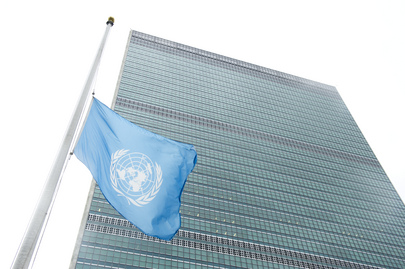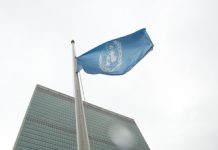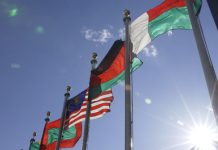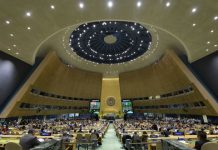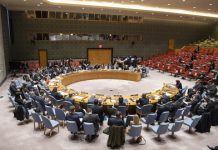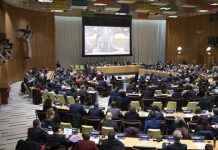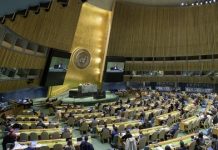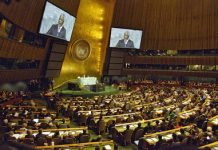“Violence, particularly in the capital Port-au-Prince, has reached alarming levels, with armed groups controlling large areas and complicating humanitarian access,” the experts, including the Special Rapporteur on the rights of internally displaced persons, said.
The clashes between gangs and the Haitian National Police have created a “pervasive environment of fear, restricting freedom of movement and access to basic services”, they added.
In the first quarter of 2024 alone, gang-related violence reportedly claimed the lives of or injured 2,500 Haitians, including 82 children.
Women and children have been the worst affected, amid heightened risk of sexual violence and exploitation.
Mass displacement
Many internally displaced persons (IDPs) are living in “overcrowded and inadequate conditions without basic hygiene and sanitation, facing severe shortages of food, water, shelter, and medical care, including a lack of safe and private spaces for psychological support,” the independent experts said.
According to the UN International Organization for Migration (IOM), nationally, 80 per cent of IDPs are living with host families while the remaining are sheltering in sites, many in gang-controlled or high-risk areas.
Nearly half of the country’s population is suffering from severe hunger, with 18 per cent at “emergency” level of food insecurity.
Impact on children and women
Children and women have been disproportionately impacted by the effects of the violence and instability in Haiti, with more than 310,000 women and girls, and 180,000 children among the displaced.
More than half a million children are living in neighbourhoods controlled by armed groups, at heightened risk of violence and child recruitment.
Furthermore, the growing number of unaccompanied displaced children makes them particularly vulnerable to exploitation, abuse and trafficking by gangs.
The violence and attacks on educational facilities have also forced the closure of nearly 900 schools, affecting almost 200,000 children, disrupting learning and putting children at increased risk.
Sexual violence against women and girls at IDP sites is also surging as gangs continue to use rape as a weapon of terror, the Human Rights Council-appointed independent experts said.
Call to action
Amidst the alarming situation, the experts called for greater female leadership and participation to ensure a successful political transition in Haiti.
They also urged greater efforts to address root causes of displacement to build sustainable solutions for the future.
“Durable solutions for IDPs, such as safe return, resettlement, or local integration, require addressing the root causes of displacement, including violence, political instability, and environmental degradation,” they said.
Independent experts
Appointed by the Geneva-based Human Rights Council and forming a part of its Special Procedures, Special Rapporteurs are mandated to monitor and assess the rights situation in certain thematic or country situations.
They work in their personal capacity, independent of the United Nations and national governments.
They are not UN staff and do not receive a salary.
Source of original article: United Nations (news.un.org). Photo credit: UN. The content of this article does not necessarily reflect the views or opinion of Global Diaspora News (www.globaldiasporanews.net).
To submit your press release: (https://www.globaldiasporanews.com/pr).
To advertise on Global Diaspora News: (www.globaldiasporanews.com/ads).
Sign up to Global Diaspora News newsletter (https://www.globaldiasporanews.com/newsletter/) to start receiving updates and opportunities directly in your email inbox for free.


